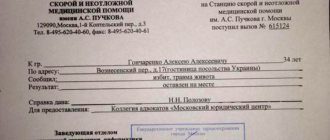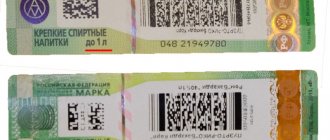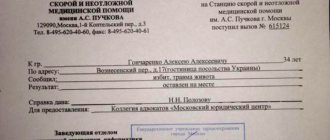Home / Situations
Back
Published: 03/09/2020
Reading time: 4 min
0
1075
In the films we see on TV, detainees are given the right to one phone call. But what is the reality like? Can a detainee demand from the police the right to a telephone call when he is detained? Or is this right not provided for by Russian legislation? Who can he call if he is given the opportunity to call? To answer this question, you need to rely on the provisions of the Federal Law of February 7, 2011 No. 3-FZ “On the Police”.
- What the law says
- Whom does the detainee have the right to call?
- Cases of granting the right to call
- Cases when the phone cannot be used
- Conversation restrictions
- Rules for exercising the right to call How the exercise of the right is formalized
- What if the right to make a telephone call is denied?
What the law says
Does a detainee have the right to a telephone call? When a police officer approaches a person on the street (for example, to check documents), this does not mean that he has been detained and charged. In this case, demanding a call is pointless and the person can call anyone without permission.
If a person is detained, then this indicates some restriction of the rights and freedoms of a citizen. But the right to make one telephone call remains: it is allowed to be made within three hours after the arrest.
Your requirement can be supported by reference to a legal norm. Based on Part 7 of Art. 14 of the Police Law, a detainee has the right to make a telephone call to loved ones . He can also ask the policeman to call his relatives to indicate where he (the detainee) is. Thus, a telephone call can be made by a detainee or a police officer, an investigator, or an interrogating officer (depending on the context of the arrest).
The right to make one telephone call in 2015 was also officially enshrined in the Criminal Procedure Code (CPC) in 2015 by Federal Law No. 437-FZ “On Amendments to the Criminal Procedure Code of the Russian Federation.” In Part 1 of Art. 96 of the Code of Criminal Procedure emphasizes that a person suspected of committing a crime can exercise the right to a telephone conversation within up to 3 hours after transporting him to the inquiry agency or to the investigator.
Based on legal norms, the right to call should be exercised immediately, but no later than the deadline for preparing the arrest report.
In addition to the right to a telephone call, the detainee should not forget about the right not to testify against himself and his family . He has the right to defense (including judicial protection) and the presumption of innocence.
He may also receive the right to legal assistance from the moment of detention and the right to refuse to give explanations and testimony without a lawyer.
Detention period
This measure is considered temporary. As a result of the investigation, it may turn out that the person is innocent. Therefore, the law allows citizens to be detained only for 48 hours. This is within the framework of criminal proceedings. And if a person is detained on an administrative matter, law enforcement officers can hold him at the police station for only 3 hours. They may be detained for 48 hours if:
- Identity cannot be established;
- an administrative offense has been committed for which administrative arrest may be provided.
And in order to keep a person accused of committing a criminal offense in a cell, he needs to be charged. Then the court will decide whether it is worth making a decision on the measure of restraint or whether it is necessary to let the person go home.
The price of each piece of paper
Every document drawn up when a citizen is detained is of great importance. And if the detainee’s lawyer notices that the protocol was drawn up in violation of procedural norms, he will pretend that he ignored the discovered mistake. In the protocols for recording an administrative offense, detention, search, various fields are provided that require mandatory completion. Police officers are unlikely to fill out these lines in a timely and competent manner.
Therefore, it is necessary to insist that the words of the detainee that are beneficial to him are included in the protocol, and the remaining empty spaces are filled in with dashes. In addition, you must request a copy of the document. Then, if the law enforcement officer subsequently changes (adds) the content of the protocol, it will be impossible to hide this fact. And falsifying a document is already an official crime.
The court considers, first of all, documents. Any violations committed during their preparation will help the citizen justify himself. But the judge has the right not to believe the words of the defendant. They will be judged to be untrustworthy. There is always more faith in the police, although it is also impossible to recognize them as people who are not personally interested in a specific turn of events.
Whom does the detainee have the right to call?
The legislation does not clearly indicate the list of persons who can be called as part of the exercise of their rights.
The right to a telephone call is guaranteed to a detainee for a reason, but so that he can notify his loved ones about his whereabouts and the fact of detention. He can call his wife, children, parents and other close people and relatives.
If you were unable to call your loved ones, you can report the incident to third parties.
How to protect yourself from arbitrariness
There are several ways to protect yourself.
- You need to use the assistance of a highly qualified lawyer. You should not answer any questions without his participation.
- In case of violation of rights, the detainee should call the prosecutor on duty.
- There is an internal security service of the Ministry of Internal Affairs.
Phone numbers of law enforcement agencies are available on the information stand. However, you need to understand that neither the interrogator nor the investigator will help the detained citizen in protecting his rights. Most likely, the lawyer or relatives will have to raise the alarm.
A citizen could intentionally or unwittingly break the law. However, this does not mean that law enforcement officers are also allowed to violate rules and regulations. After all, then they themselves will become criminals, only hiding behind the broad back of the state.
For a lawyer, his client is always right, even if he has committed a crime before the state. Whether a person is truly guilty is for the judge to decide. And the task of a lawyer is to fully assist in the acquittal of his employer. A hired lawyer must not allow the rights of a detained client to be violated. He is also obliged to turn any mistakes by law enforcement officials to the benefit of the citizen. Then his client will be acquitted in court.
Cases when the phone cannot be used
The right to a telephone call is guaranteed by default to all detainees, unless otherwise established by the Code of Criminal Procedure. But the law provides a list of persons who are not entitled to such a right (based on Part 11 of Article 14 of the Federal Law “On the Police”). This:
- Persons who are detained as a result of escaping from custody or a psychiatric institution.
- Persons who evade serving their assigned administrative punishment in the form of administrative arrest.
- Persons who evade serving a criminal sentence, from receiving an order to be sent to the place of serving the sentence, or who fail to arrive at such a place within the established time frame.
- Persons who are wanted.
- Persons evading the implementation of intended educational measures.
- Persons evading admission to specialized psychiatric treatment institutions or hiding from forced hospitalization.
In all other cases, the citizen has the right to make a telephone call.
Other rights during arrest
Now we will tell you about other rights during arrest . For effective protection, these rights should also be exercised.
When you are detained, you have the right to receive a copy of the detention protocol, the protocol explaining the rights of the suspect, and the detention order. These documents must be provided to you for signature. Sign the box indicating that you have received a copy of the document being signed only after you are actually given such a copy. This is the duty of the official. Feel free to demand its fulfillment.
Despite the stress, make every effort to focus on the documents. When reading any documents that you are given to sign, carefully check whether all the information specified in the documents corresponds to reality (place, time of detention, time of drawing up the document, list of items seized from you, valuables, amounts of money, etc.). This will help you protect yourself procedurally and reserve a chance to subsequently return the personal belongings confiscated from you during your arrest.
For more information about the procedure for conducting a search (including a personal search during arrest) and actions to protect your rights, read a separate article by lawyer Ilya Igorevich Pankov. A link to the list of a series of articles on the topic: “The right to defense” is given at the end of this article.
If the information in the document is incomplete or incorrect, be sure to indicate when signing which entries you do not agree with and how they should be reflected. You also have the right, in your own hand, when signing any document, to indicate the requirement to immediately provide a lawyer.
For more information on how to read and sign documents and submit petitions, read a separate article by lawyer Ilya Igorevich Pankov. A link to the list of a series of articles on the topic: “The right to defense” is given at the end of this article.
Keep with you all documents that are handed to you. As a result of formalizing the detention, you should have at least copies of the following documents in your hands: a copy of the detention protocol, a copy of the protocol explaining the rights of the suspect with a list of your rights, a copy of the detention order.
When covering rights during arrest , it is important to mention the right to immediately upon arrest receive a copy of the decision to initiate a criminal case. From the contents of this document you will have an idea of what case you were detained for. Despite the fact that detention can be carried out before the initiation of a criminal case, we recommend that you file a petition about this in any case. To exercise the right, upon arrest, to immediately receive a copy of the decision to initiate a criminal case, declare this in writing, namely, write about it in any document that you are given to sign (detention protocol, protocol of clarification of rights, detention order, etc.) .
When using your rights during detention, remember your right to notify family members or close relatives through the criminal prosecution authority about the place of your detention. Detention includes short-term detention. Therefore, feel free to demand the exercise of this right upon arrest. In particular, demand the ability to independently call a close relative or family member to notify them of your location, or to have such a call made by an operational worker or investigator. During a telephone conversation when notifying of detention, you can additionally inform your relative that you need a lawyer. This will increase the likelihood that the defense attorney will enter the process more quickly and provide you with the assistance you need immediately.
The implementation and correct use of rights during detention are of great importance and can have a decisive influence on the course of the entire further process.
Read more articles on this topic!
Go to the list of articles in the “Right to Defense” series...
DO YOU HAVE ANY QUESTIONS?
Conversation restrictions
Investigators have the right to introduce restrictions on the right to make a telephone call. This opportunity is guaranteed to them by Part 4 of Art. 96 Code of Criminal Procedure. This decision is justified by the need to preserve the secrecy of the fact of detention in the interests of the investigation. To restrict the right to make a call, there must be a reasoned resolution of the inquiry officer or investigator with the consent of the prosecutor.
The introduction of restrictions is not permitted if the suspect is a minor.
In any case, the legal representatives of the minor are notified of the incident as soon as possible.
Definition of detention and its reasons
Detention is the deliberate deprivation of a person's liberty for a short period of time if the detainee is suspected of committing a crime. This measure can be applied at an early stage of the investigation of a criminal or administrative case.
Detention is regulated by the Code of Criminal Procedure of the Russian Federation and is an emergency method that can only be used in conditions where a specific person is suspected of committing a crime by investigative authorities, and also if, according to the pre-trial investigation, the detention of the suspect will protect society and prevent possible offenses. However, detention can only be done on certain documented grounds. So, in Art. 91 of the Code of Criminal Procedure of the Russian Federation reflected the following reasons for detention:
the citizen was caught red-handed while committing an offense;- in the presence of clear testimony that would prove that a particular citizen is the main person involved in the criminal act;
- if there are traces of a crime on the personal belongings of the suspect, on his body or at the place of residence, and the suspect himself cannot clearly explain their appearance;
- in the presence of any data that directly and thoroughly indicate the guilt of the suspect.
- Detention is necessary to prevent further offenses.
Also, based on Art. 38 of the Criminal Code of the Russian Federation, during detention, it is permissible to cause harm in certain conditions when it is not possible to avoid this. However, causing harm may be considered as abuse of power in cases where the suspect did not pose an obvious danger to the life of society, as well as when the suspect was intentionally and unreasonably inflicted with bodily harm. Such behavior by police authorities is criminally punishable.
Important fact
In conditions where a military officer or an employee of the Ministry of Internal Affairs is suspected of committing an offense, it is necessary to notify the immediate commander or command department of the detainee.
Rules for exercising the right to call
The exercise of the right to make a telephone call has the following features:
- The detainee is entitled to one telephone call.
- The conversation must take place in Russian.
- The conversation takes place in the presence of an investigator or interrogator.
- The purpose of the conversation is to notify about the fact of detention and the location of the caller. Although the detainee should be guided by the stated purpose of the call, he can also ask to find a lawyer to ensure his defense.
How the exercise of rights is formalized
Based on the results of the call, the operational duty officer makes a note in the arrest report. If the detainee refuses a telephone call or if he has physical or mental characteristics that do not allow him to independently exercise this right, a corresponding note is also made in the protocol.
If the detainee refuses or is unable to make a telephone call, then the investigator or interrogating officer must notify relatives.
If a lawyer is detained, the regional chamber of lawyers of which he is a member is notified of this fact within 12 hours from the moment of detention.
Two main rights during arrest
For the most effective defense in criminal proceedings, especially during detention, one of the main rights of the suspect is: the right to have a lawyer from the moment of actual detention, as well as the right to refuse any testimony. Remember these two main rights when you are arrested. It is the correct implementation of these rights that can, to the maximum extent possible in your situation, protect you in criminal proceedings and not worsen the situation. Operational workers and investigators will try to carry out as many procedural actions as possible with you in the absence of a lawyer, including persuading you to give explanations and, possibly, testimony. Don't let this happen. Demand the immediate availability of a lawyer, verbally and in writing, i.e. in every document that you are asked to sign. Feel free to refuse any explanations or testimony before speaking with a lawyer.







